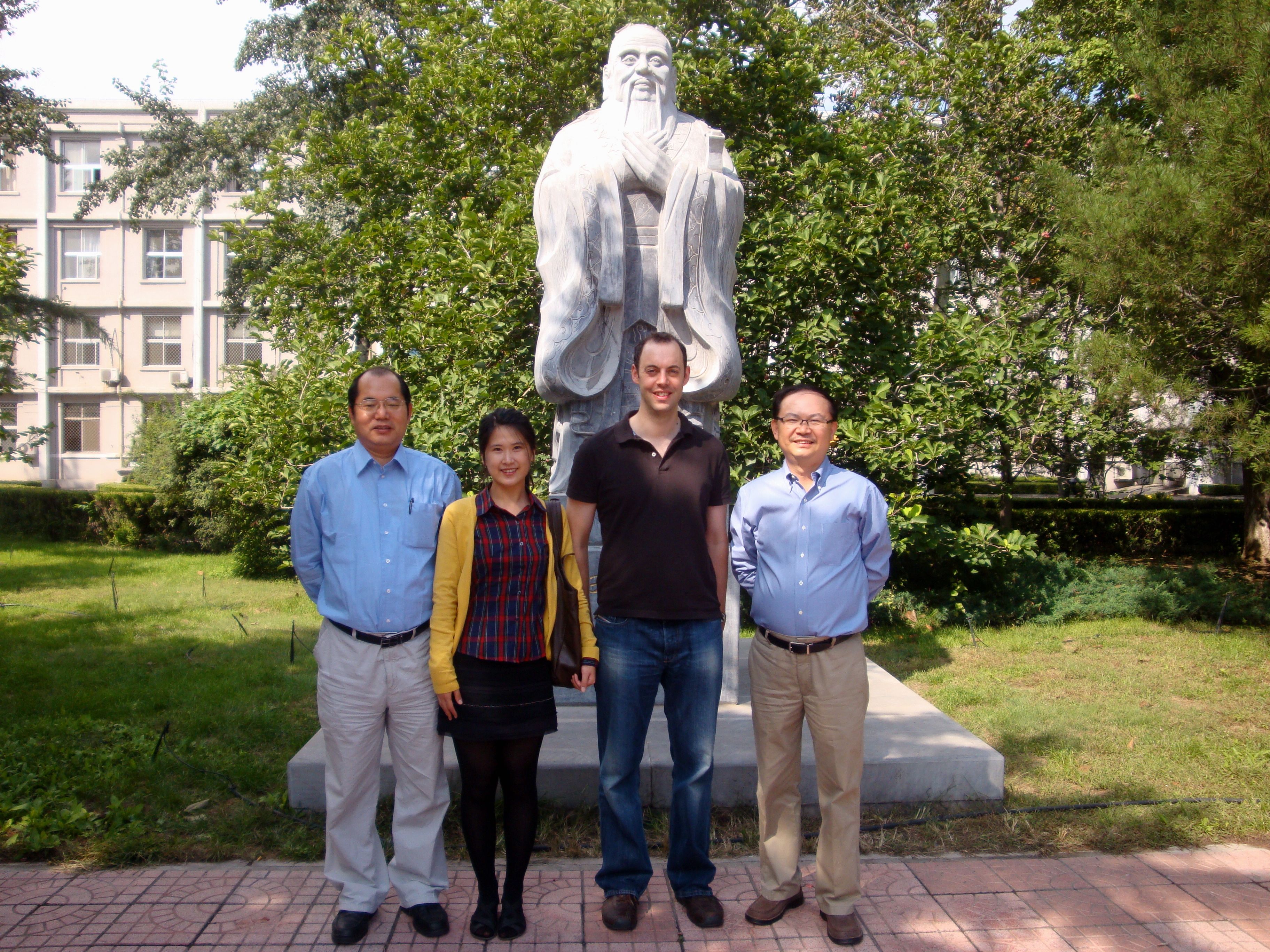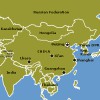I arrived at my hotel in Beijing just before midday, and met up again with Rosemary from the RSC who had kindly agreed to spend her afternoon showing me some of the sights of the city. However, before this we lunched at one of the restaurants in the Beijing Institute of Technology (BIT) with Lei Fengyun , Deputy Director General of at SAFEA and Professor Wang Qinglin, Director of the International Office at BIT. SAFEA were joint instigators and sponsors of my trip, and I found it particular valuable to meet Lei Fengyun and talk to him about how he envisions the SAFEA-RSC program developing over the next few years. He was particularly keen to tell me how he would like to extend the scheme to more Universities in the West of China, since these Universities are on the whole less well developed and tend to have no or very few contacts or collaborations with Universities outside China.

After lunch Professor Qinglin gave us a tour of the BIT campus, which despite being in the centre of Beijing was very green and full of date and persimmon trees. The University was also the proud owner of a new indoor stadium, built to house the volleyball competition at the 2008 Olympics. After saying goodbye there was just time for a quick trip to Tiananmen Square and the Forbidden Palace, which was certainly a highlight for me. Tomorrow I return the London and the beginning of a new academic year.
Reflecting on my trip, I can say that it was certainly a worthwhile and educational experience, and I have been particularly impressed by the generous hospitality of all my Chinese hosts. I hope very much that in the future I can continue to contribute to the SAFEA-RSC program and return to meet again my new friends and scientific collaborators in Tianjin, and also maybe visit some other Universities in the West of the country which I imagine will once again challenge all my preconceptions of China.
Thanks to David Clark, Hongmei Peng and Anna Simpson at the RSC for organising much of the trip for me, the RSC and SAFEA for funding, and also all my hosts in China especially Professor Xian-He Bu.
more...
